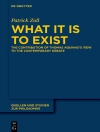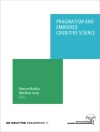Reasonableness is at the centre of legal debate, both in academic circles and in practice. This unique reference work adopts an interdisciplinary perspective, merging jurisprudence, legal theory, political philosophy and the different branches of law. All aspects relating to reasonableness and law are addressed by the most prominent scholars in the field. In the first part of the book, the focus is on jurisprudential analyses of the concept of reasonableness and on its moral, political and constitutional implications. In the second part, reasonableness is examined in the different fields of law like Public, Private and International Law. Here in more detail the practical consequences of reasonableness are worked out, making this work of interest to practitioners as well as legal theorists.
Tabela de Conteúdo
Legal, Political and Constitutional Theory.- The Reasonableness of the Law.- A Sufficientist Approach to Reasonableness in Legal Decision-Making and Judicial Review.- Reasonableness, Common Sense, and Science.- Reciprocity, Balancing and Proportionality Rawls and Habermas on Moral and Political Reasonableness.- Law, Liberty and Reason.- Reasonableness and Value Pluralism in Law and Politics.- Global Legitimation and Reasonableness.- Philip Pettit’s Law, Liberty and Reason: Republican Freedom and Criminal Justice.- Proportionality, Judicial Review, and Global Constitutionalism.- Constitutional Adjudication and the Principle of Reasonableness.- Some Critical Thoughts on Proportionality.- Private, Public and International Law.- Reasonable Persons in Private Law.- The Reasonable Consumer under European and Italian Regulations on Unfair Business-to-Consumer Commercial Practices.- Reasonableness in Administrative Law.- Reasonableness in Administrative Law: A Comparative Reflection on Functional Equivalence.- Reasonableness, Bioethics, and Biolaw.- Reasonableness in Biolaw: Is it Necessary?.- Reasonableness and Biolaw.- Reasonableness in Biolaw: The Criminal Law Perspective.- The Principle of Reasonableness in European Union Law.- An Evolving “Rule of Reason” in the European Market.- From State-Centered towards Constitutional “Public Reason” in Modern International Economic Law.












